US Sinologist: Chinese, American dreams must embrace for peace
Updated: 2015-05-01 09:57
By Pu Zhendong(China Daily USA)
|
||||||||
While many are pessimistic about the contentious nature of the Beijing-Washington relationship, United States Sinologist Patrick Mendis foresees an embrace of the Chinese and American dreams to create a new Pacific world order of peace and prosperity.
The Chinese dream aims at national rejuvenation powered by industrial modernization, which differs from its American counterpart, rooted in "the unalienable rights of life, liberty and the pursuit of happiness", said Mendis, a distinguished senior fellow and affiliate professor of public and international affairs at George Mason University, during a recent lecture in Beijing.
"However, the two dreams may draw closer if business and commercial ties contribute to the development of a new type of Sino-US major-power relationship," said the former US diplomat and military professor, who also currently serves as a distinguished visiting professor of international politics at Zhejiang University in Hangzhou.
"The Chinese dream is essentially rewriting of the American dream in Chinese characters," he said.
In his view, Beijing, with its increasing military might, has been exercising its own version of the "Monroe Doctrine" through advancing its sovereign claims in the South and East China Seas, and its "manifest destiny" when stretching its 21st Century Maritime Silk Road into the Indian Ocean.
Mendis said the Chinese leadership also learned from US foreign policy traditions laid out mainly by American founding fathers such as Thomas Jefferson and Alexander Hamilton.
"Jefferson advocated more decentralized power at a grassroots level with greater democratic governance and religious freedom, while Hamilton favored a centralized federal government with a national banking system and a strong navy to protect American trading and commercial interests," Mendis said.
"Deng Xiaoping was China's Alexander Hamilton, considering he ushered in economic reform and trade liberalization," he added.
Today, bilateral relations between China and the US are largely driven by commercial and trade interests; the two economic front-runners - as an exporter and importer, producer and consumer - have elevated international trade to the center stage.
Mendis said while the US is negotiating the Trans-Pacific Partnership with 12 regional economies that do not include China, Beijing also agreed to groundbreaking free trade agreements with "US friends", Australia and South Korea.
"This is the example of China exercising assertive power, being proactive and confident in international relations," he said.
However, Mendis does not uphold the rhetoric of eventual confrontation between the rising Confucian Beijing and established Judeo-Christian Washington.
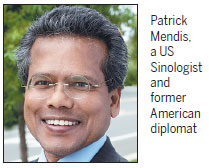
"Both governments seem to understand that a conflict or a proxy war would be counterproductive and catastrophic. Reflective leadership is needed to avoid the likelihood of tragedies," Mendis said.
"China's Silk Road initiatives and the US pivot in Asia should supplement and cooperate for the sake of trade, economic growth and regional stability," he added.
According to Mendis, trade, a force for public good, agreed on by both Jefferson and Hamilton, can bring people of different ethnic groups, languages and cultures together.
Author of more than 100 books, journal articles, newspaper columns and government reports, Mendis has received numerous awards for his leadership, public service and philanthropic activities. He has lived, traveled, and worked in more than 100 countries.
Born in Sri Lanka and educated in British and American schools, Mendis first came to China in 1999, and later became a frequent visitor to the country.
puzhendong@chinadaily.com.cn
(China Daily USA 05/01/2015 page10)
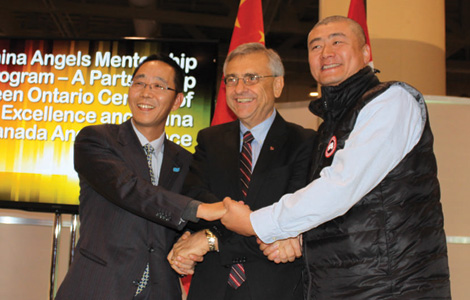
 Across Canada (May 1)
Across Canada (May 1)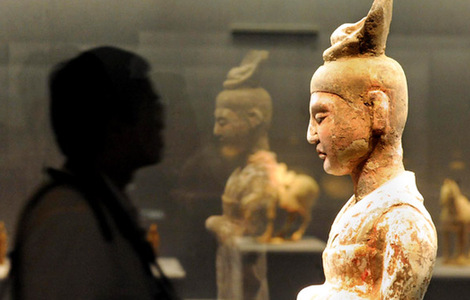
 China's top 10 GDP provinces in Q1
China's top 10 GDP provinces in Q1
 Photos capture marvelous landscapes of China
Photos capture marvelous landscapes of China
 Mass exodus from Kathmandu
Mass exodus from Kathmandu
 Running on water: a nearly impossible feat
Running on water: a nearly impossible feat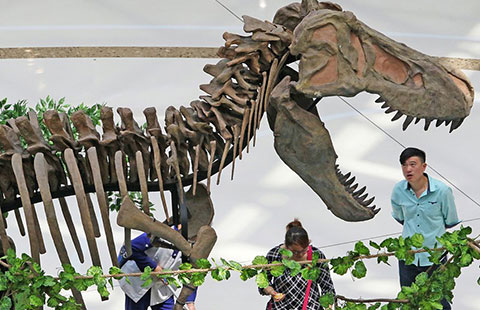
 Ten photos you don't wanna miss - April 30
Ten photos you don't wanna miss - April 30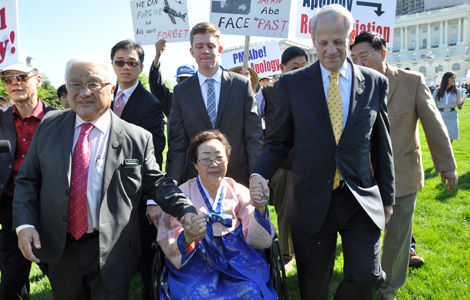
 'Comfort women' survivor attends protest of Japan PM
'Comfort women' survivor attends protest of Japan PM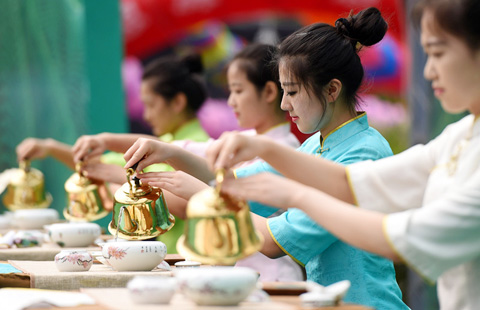
 Ten photos you don't wanna miss – April 29
Ten photos you don't wanna miss – April 29
Most Viewed
Editor's Picks

|

|

|

|

|

|
Today's Top News
Abe betrays history's conscience
Vancouver property developer identified as Chinese fugitive: report
Freddie Gray tried to hurt himself in police van
China trainmakers seek control of Bombardier's rail unit
New rich set sights on tech, media and telecom sectors
US rapped for stance on Japan
Obama, Abe talk much about China
Japan PM protested at US Capitol, San Francisco
US Weekly

|

|






